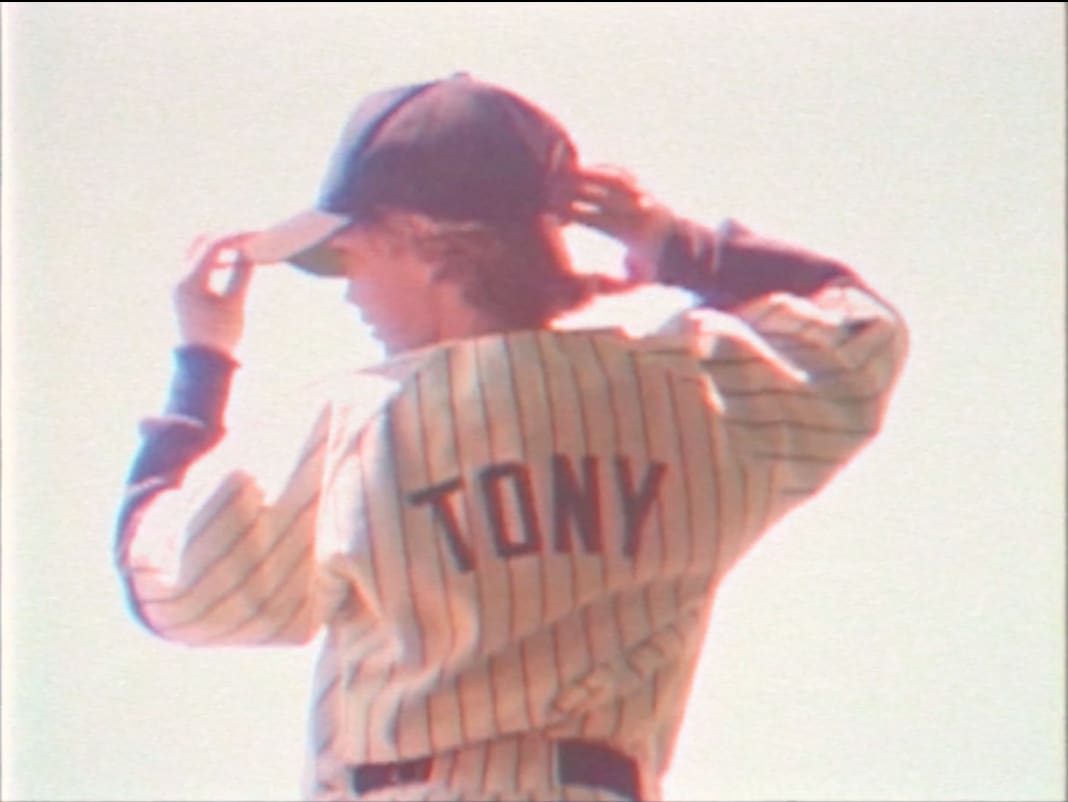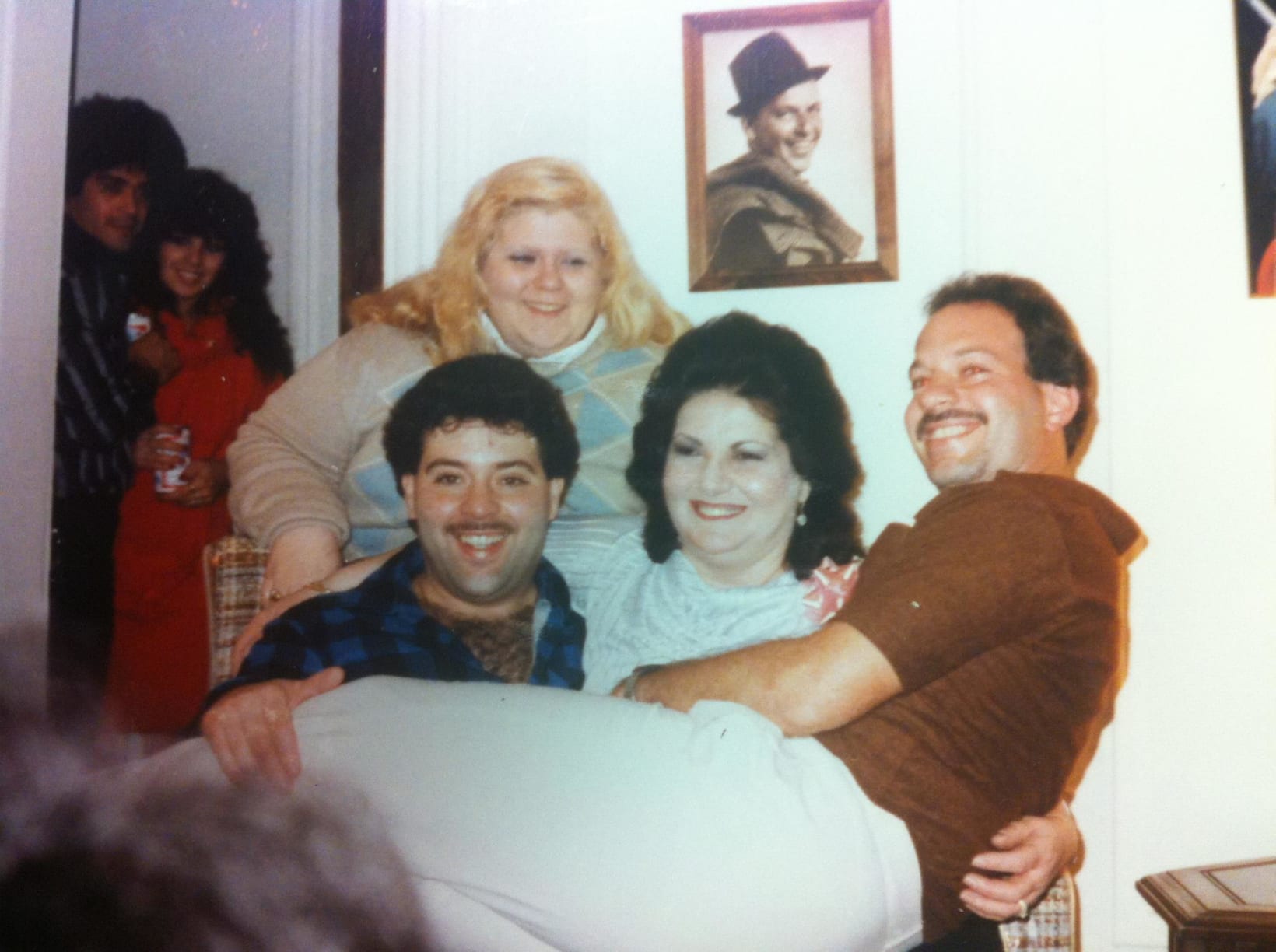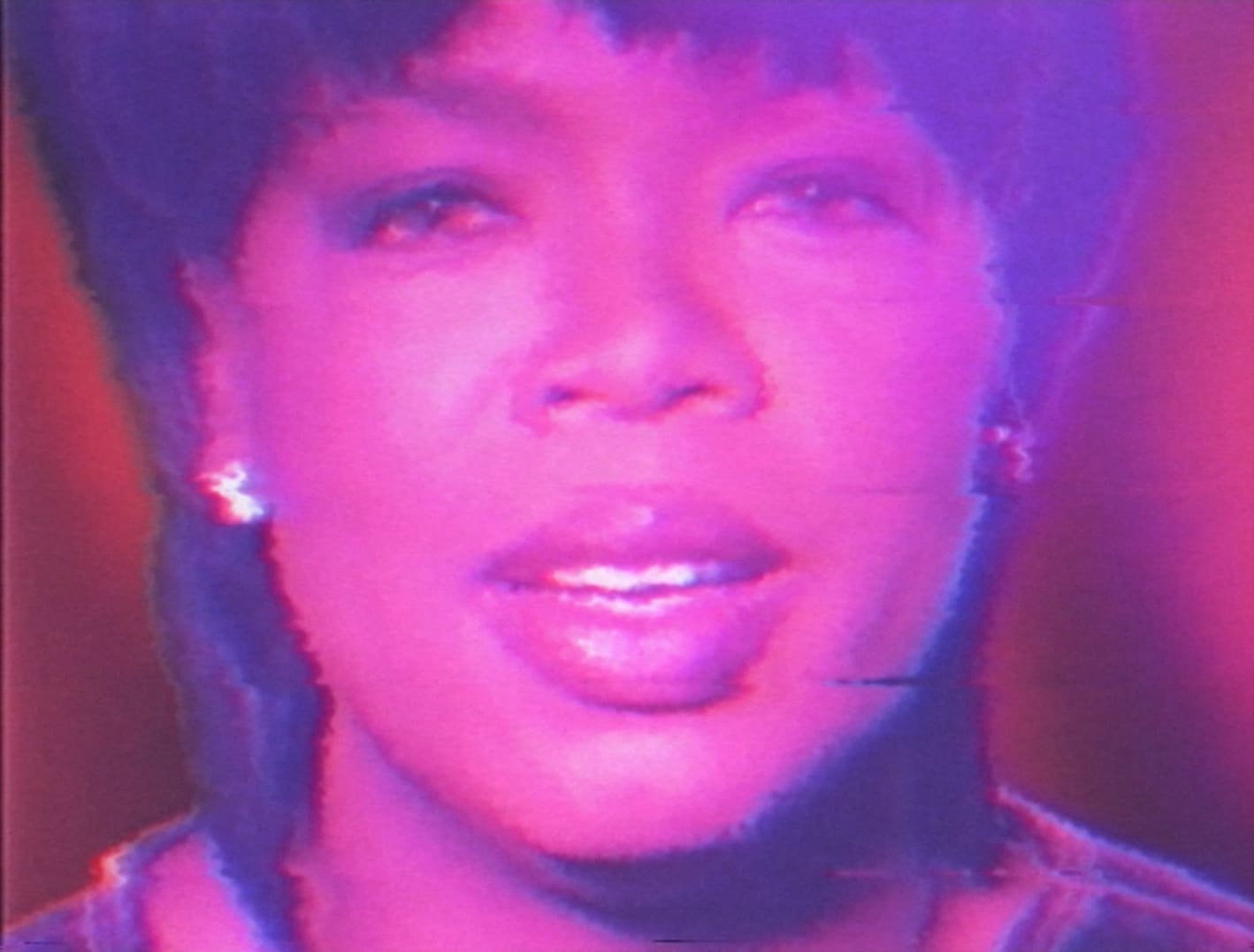
Tony Fraginals: Interview with Ben Young
Ben Young draws upon his childhood experience with a friend unlike any other in Tony Fraginals, presented exclusively as part of our Home Entertainment Edition.
First of all, what was the starting point for the creation of the film?
'Tony' was a childhood friend of mine—an older brother figure who I knew only through telephone and email. Our friendship was engineered by a TV producer who wanted Tony to have a normal-kid pal to talk to, both for the sake of both Tony's upcoming ABC special and for his ostensible wellbeing: the rest of Tony’s friends were all adults and/or celebrities. The experience of being Tony's 'little brother' was less a trauma than it was a deeply uncanny experience, like spending a few years of your adolescence in a parallel dimension. After some years of avoiding the fact I have however come to accept that I was groomed. It wasn't about sexual predation in my case—although that, sadly, is part of the wider Anthony Godby Johnson saga. It was about using a real kid to help prop up a bizarre, elaborate media hoax about a kid who didn’t exist.
For many years afterward, I rarely mentioned ‘Tony’ to anyone, even to close friends. Describing just the basic contours of it all seemed a quick way to sound bonkers. Toward the end of 2017, shortly after my mother's death, I went straight back to work, perhaps a bit too soon. One afternoon I stumbled into a script development debate with a director whose feature I was producing at the time: a fairly gnarly discussion over when and how autobiographical subject matter can and should be integrated into a film. I remember going home and standing over the kitchen counter. Some combination of adrenaline from that exchange and unresolved grief over my late mother seems to have caused long-repressed memories of 'Tony' to come flooding back. I wanted to talk to Tony's creators and settle up once and for all.
I sent a super-anodyne email to 'Tony' and his creators/mothers. It was an invitation to a private conversation: no recriminations, no accusations, just the facts. Their reply took the form of telephone harassment—hang-up calls and so forth. It was at that point that I thought 'okay, fuck you too - if you're still resorting to creepy nonsense after all these years, I'll have to address you through other means.' I secured the rights to Tony's old TV special and got to work making the film.
The film is from your POV as a childhood friend of Tony’s. Why did you choose this format over a conventional documentary format?
On a functional level, it was expositional expediency: the broader story and my own part in it are so fractally complex that a direct address essay film was by far the most efficient way to tackle this in short form. Addressing 'Tony' from my own POV also made it possible to swiftly plunge the viewer into the weird cognitive limbo that comes with having a friend who is basically Schrödinger's cat incarnate. There was a further sense that, because I was roped into the Anthony Godby Johnson scam as a kid, a short approached from my perspective had more implicit creative freedom. In the years since the collapse of Tony’s public profile, the shame, embarrassment, or perceived guilt-by-association of those who joined the hoax as adults seems to have prevented the overwhelming majority of them from discussing or even acknowledging their experiences in any depth.
Now that I'm exploring a possible long form expansion of the film, it's a different calculation: the short has done the initial heavy lifting, and that should in combination with more screen time open up a wider range of creative approaches —including some investigative elements that were beyond the budget and scope of the short.
The film discusses the power of media in creating a story, perhaps even when there’s no story there. With the rise of the internet and other forms of media, do you think that a similar story could take place today?
Through a small number of ambassadors—a literary agent here, a TV producer there—Tony’s creators could scam large media organisations and generate public credulity at scale. At the same time, ‘Tony’ could provide the illusion of accessibility and transparency via his homemade website, Tony’s World, which was a bit like a prehistoric MySpace page. Back then, before the rise of catfishing and surveillance capitalism and so much else, it worked like a charm: after all, who would make up a story like Tony’s?
These days, it is unlikely that Tony could surf our gated institutional narratives and moral panics like he once did: it’s just not technologically possible to sustain a con this baroque year after year. What we have instead is a proliferation of what I think of as a swarm of Fruit Fly Tonys: insane, fact-free (or, more dangerously, fact-adjacent) memes that fly fast and either flame out or find a dark spot to nestle in with a niche audience. Tony may have lost the battle for his own existence, but he mostly seems to have won the larger war on reality, thanks to the perverse incentives of our attention economy.
What, in your opinion, would lead someone like Vicki to create someone like Tony?
There seems to have been a bottomless, mythomaniac need for pity and attention on Vicki’s part. The teachers at the primary school where she briefly worked in the 80s have attested to that. I think she was profoundly lonely and alienated, too: a geeky woman-child who never fit in at school, at work, or among her charismatic, Sinatra-loving, Cuban-American family. There was also a deep-seated love/hate relationship with people whom she perceived to be cultural elites. Vicki (and Tony) loved getting attention from them just as much as they loved getting one over on them.
Despite the truly incredible story, and the clear widespread coverage in the media, no one I spoke to had heard of Anthony Godby Johnson. Why do you think this is, and what does it say about how quickly we move on?
Tony has had so many lesser imitators over the years, from James Frey to J.T. Leroy, that his foundational role as the Cultural Catfish OG seems to have become obscured: he’s a victim of his own influence. In addition, because of the unique historical moment when he arose—the power of legacy media intact, the early, naïve days of mass internet access ramping up—seems so remote, the whole saga is just hard to believe. He fooled everybody: Oprah, Mister Rogers, everyone. It was trolling on such an epic scale that I think a lot of the individuals and organisations taken in by Tony are still in denial. To interrogate the past would be to interrogate the groupthink of broadly well-intentioned people within media organisations who can stumble into spreading poisonous cultural contagion.
Are there any particularly interesting things you came across that didn’t make it into the film for whatever reason?
There are a lot of my own experiences and wider discoveries that we couldn’t reasonably fit into the film, but I’m looking forward to making room for them in a long form expansion of the project. From the story of the fictional husbands invented by Tony’s creators to service their scam, to the story of the child psychotherapist Vicki actually married after he wrote Tony a fan letter, to the story of how Vicki might have faked her own death in 2010—the list goes on.
Finally, what do you hope is the main thing people take away from this film?
I’ve come to think of Tony as an AI. A sort of HAL 9000 that exploited a bug in our cultural programming: our failure to grasp the difference between empathy and compassion. I hope the film illustrates how volatile, self-indulgent and potentially disastrous raw empathy can be. How our culture might be able to shift toward forms of rational compassion that do not shut down our individual and collective capacity for critical thinking.



